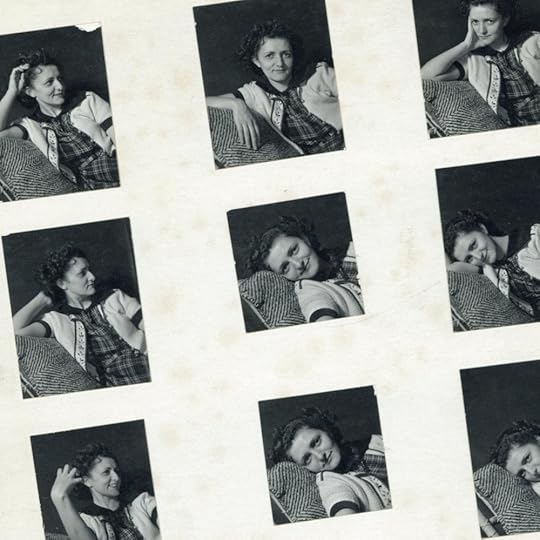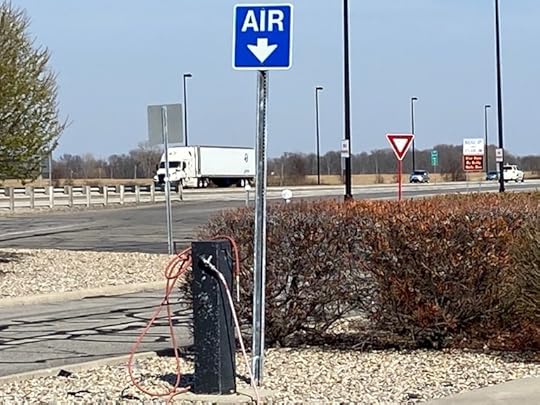Michael J. Kramer's Blog, page 34
April 27, 2021
2021 May 03—Echoes of Seema Weatherwax

The University of California-Santa Cruz Library’s Center for Archival Research and Training (CART) is pleased to present Echoes of Seema Weatherwax: History, Sound, and Creative Practice in the Archive.
This program will celebrate the recently processed audio archive of the Sara Halprin Interviews of Seema Weatherwax. Brock Stuessi, a former CART Fellow who processed this archive, will be joined by scholar Michael J. Kramer to discuss the unique opportunities of working with sound archives and the ways that the recorded words of Santa Cruz photographer and activist Seema Weatherwax—who worked with the Weston family, Ansel Adams, and other notable photographers during her artistic career, and who was married to writer and political activist Jack Weatherwax—give voice both to the historical value of everyday life and to her important legacy of activism and art.
Moderated by Alix Norton, Archivist for the Center for Archival Research & Training (CART).
Hosted by Special Collections & Archives, The University Library.
05/03/21: Echoes of Seema Weatherwax

The University Library’s Center for Archival Research and Training (CART) is pleased to present Echoes of Seema Weatherwax: History, Sound, and Creative Practice in the Archive.
This program will celebrate the recently processed audio archive of the Sara Halprin Interviews of Seema Weatherwax. Brock Stuessi, a former CART Fellow who processed this archive, will be joined by scholar Michael J. Kramer to discuss the unique opportunities of working with sound archives and the ways that the recorded words of Santa Cruz photographer and activist Seema Weatherwax—who worked with the Weston family, Ansel Adams, and other notable photographers during her artistic career, and who was married to writer and political activist Jack Weatherwax—give voice both to the historical value of everyday life and to her important legacy of activism and art.
Moderated by Alix Norton, Archivist for the Center for Archival Research & Training (CART).
Hosted by Special Collections & Archives, The University Library.
April 15, 2021
The Shank
The problems of our time—which now include the problem of man’s very nature—cannot be stated adequately without consistent practice of the view that history is the shank of social study, and recognition of the need to develop further a psychology of man that is sociologically grounded and historically relevant. Without use of history and without an historical sense of psychological matters, the social scientist cannot adequately state the kinds of problems that ought now to be the orienting points of his studies.
— C. Wright Mills
April 6, 2021
Folklore in the Metropolis Video
Exploring how in the 1930s, 40s and 50s, three pioneering American folklorists—Benjamin Botkin, Tony Schwartz, and Norman Studer—challenged existing definitions of “folk” culture, expanding its boundaries to include new subjects and source material, with an eye on and ear toward the potential democratic dimensions of folklore in more urbanized, modern contexts.
Video: “Folklore in the Metropolis”—Benjamin Botkin, Tony Schwartz, Norman Studer, and the Search for Cultural Renewal Panel
Exploring how in the 1930s, 40s and 50s, three pioneering American folklorists—Benjamin Botkin, Tony Schwartz, and Norman Studer—challenged existing definitions of “folk” culture, expanding its boundaries to include new subjects and source material, with an eye on and ear toward the potential democratic dimensions of folklore in more urbanized, modern contexts.
March 22, 2021
03/22/21: Folklore in the Metropolis
In the 1930s, ‘40s and ‘50s, three pioneering American folklorists–Benjamin Botkin, Tony Schwartz, and Norman Studer–challenged existing definitions of “folk” culture along similar lines, expanding its boundaries to include new subjects and source material. Whereas folk collectors of the late nineteenth and early twentieth century scoured the countryside for lingering traces of pre-modern Anglo-Saxon musical and oral traditions, these three figures regarded the American metropolis–and the disparate voices of immigrants, workers, ex-slaves, women, children, and outsiders–as a fresh and vital source of vernacular culture. By revisiting their underappreciated work and careers, which converged at several points in the 1940s and ‘50s, this panel elaborates a unique, revolutionary vision of the city and of the uses of folklore at midcentury. It will also address the following key themes: the tensions between cultural nationalist and internationalist dimensions of their work; the paradoxes of using technology and mass media for participatory, democratic ends; the place of the city and the country in American cultural identity; and the role of the non-professional in scholarship and cultural production. This panel will show that the capacious and eclectic conception of “folk” shared by Botkin, Schwartz, and Studer reflected a common commitment to the cultural pluralist and the democratic vision of the Popular Front. Panelists include Benjamin Jordan Serby and Rivka Maizlish.
Missed the panel? See the recorded video.
03/22/21: Folklore in the Metropolis—Benjamin Botkin, Tony Schwartz, Norman Studer & the Search for Cultural Renewal, SUSIH Conference
In the 1930s, ‘40s and ‘50s, three pioneering American folklorists–Benjamin Botkin, Tony Schwartz, and Norman Studer–challenged existing definitions of “folk” culture along similar lines, expanding its boundaries to include new subjects and source material. Whereas folk collectors of the late nineteenth and early twentieth century scoured the countryside for lingering traces of pre-modern Anglo-Saxon musical and oral traditions, these three figures regarded the American metropolis–and the disparate voices of immigrants, workers, ex-slaves, women, children, and outsiders–as a fresh and vital source of vernacular culture. By revisiting their underappreciated work and careers, which converged at several points in the 1940s and ‘50s, this panel elaborates a unique, revolutionary vision of the city and of the uses of folklore at midcentury. It will also address the following key themes: the tensions between cultural nationalist and internationalist dimensions of their work; the paradoxes of using technology and mass media for participatory, democratic ends; the place of the city and the country in American cultural identity; and the role of the non-professional in scholarship and cultural production. This panel will show that the capacious and eclectic conception of “folk” shared by Botkin, Schwartz, and Studer reflected a common commitment to the cultural pluralist and the democratic vision of the Popular Front. Panelists include Benjamin Jordan Serby and Rivka Maizlish.






